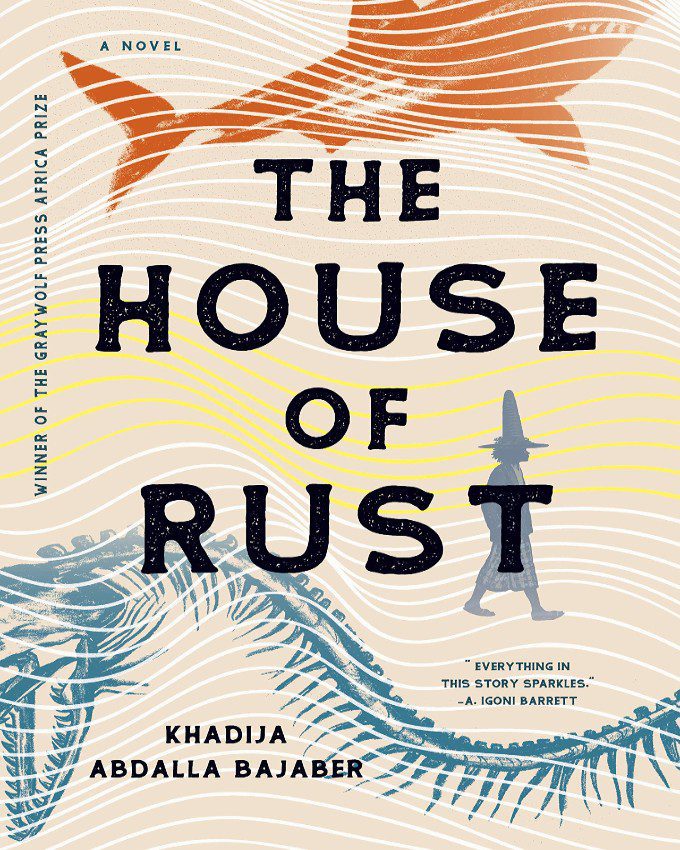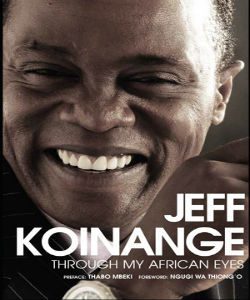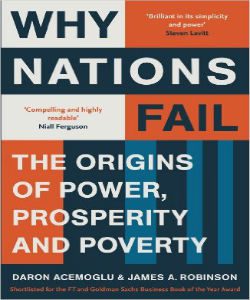Brilliant and engagingly written, Why Nations Fail answers the question that has stumped the experts for centuries: Why are some nations rich and others poor, divided by wealth and poverty, health and sickness, food and famine? Is it culture, the weather, geography?
Perhaps ignorance of what the right policies are? Simply, no. None of these factors is either definitive or destiny. Otherwise, how to explain why Botswana has become one of the fastest growing countries in the world, while other African nations, such as Zimbabwe, the Congo, and Sierra Leone, are mired in poverty and violence?
Daron Acemoglu and James Robinson conclusively show that it is man-made political and economic institutions that underlie economic success (or lack of it). Korea, to take just one of their fascinating examples, is a remarkably homogeneous nation, yet the people of North Korea are among the poorest on earth while their brothers and sisters in South Korea are among the richest. The south forged a society that created incentives, rewarded innovation, and allowed everyone to participate in economic opportunities.
The economic success thus spurred was sustained because the government became accountable and responsive to citizens and the great mass of people. Sadly, the people of the north have endured decades of famine, political repression, and very different economic institutions—with no end in sight. The differences between the Koreas is due to the politics that created these completely different institutional trajectories.
Based on fifteen years of original research Acemoglu and Robinson marshall extraordinary historical evidence from the Roman Empire, the Mayan city-states, medieval Venice, the Soviet Union, Latin America, England, Europe, the United States, and Africa to build a new theory of political economy with great relevance for the big questions of today, including: - China has built an authoritarian growth machine.
Will it continue to grow at such high speed and overwhelm the West? - Are America’s best days behind it? Are we moving from a virtuous circle in which efforts by elites to aggrandize power are resisted to a vicious one that enriches and empowers a small minority? - What is the most effective way to help move billions of people from the rut of poverty to prosperity?
More philanthropy from the wealthy nations of the West? Or learning the hard-won lessons of Acemoglu and Robinson’s breakthrough ideas on the interplay between inclusive political and economic institutions? Why Nations Fail will change the way you look at—and understand—the world."









































cheptoowinnie (verified owner) –
‘House of Rust’ by Khadija Abdalla Bajaber – a captivating Kenyan novel that takes you through a journey on family, identity, and belonging in coastal Mombasa. It’s a tale filled with mysteries, and a touch of the magical – particularly for us Kenyan readers who can relate to the captivating old sage tales of Mombasa, featuring jinns and talking animals. Like the famous book ‘The Alchemist,’ ‘House of Rust’ imparts profound life lessons on courage, self-discovery, and prioritizing self-love. However, I must admit that at times, the book’s abundance of characters, especially in the mythical parts of the story, made it confusing to keep track. Additionally, the transitions between reality and the mystical elements occasionally left me a bit lost. Despite the challenges of reading the book, the ‘House of Rust’ has some truly memorable quotes that struck a chord with me. One particular gem reminds us to embrace life in all its beautiful messiness, and it perfectly encapsulates the journey of the main character. And then there’s the touching declaration of love by Zubeir to Hababa Swafiya – a moment that warmed my heart and stayed with me.